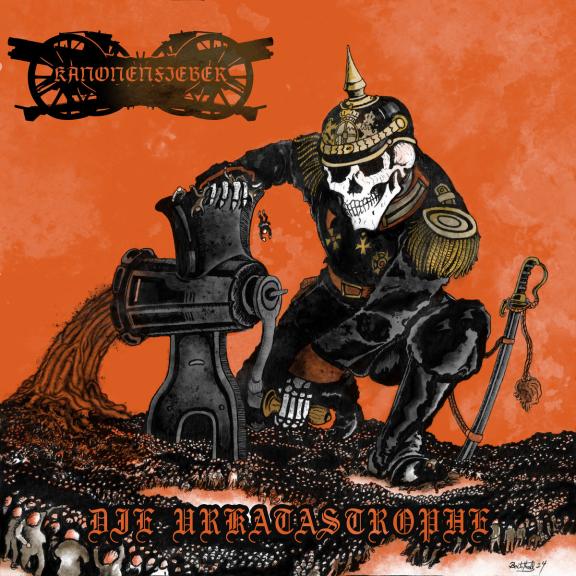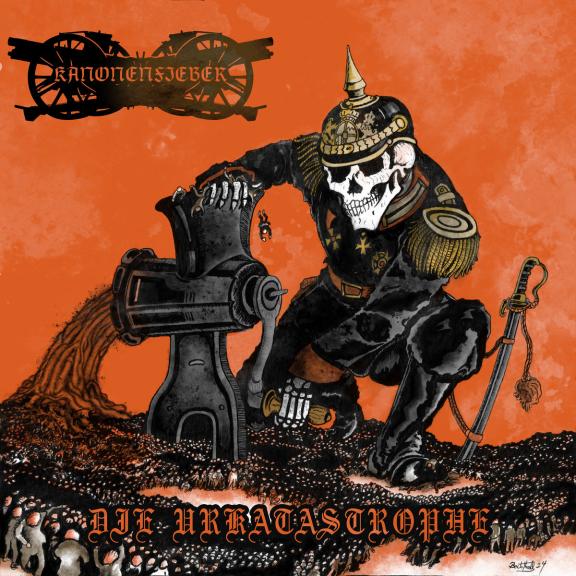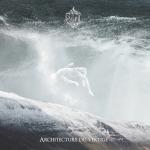It didn't take long for Kanonenfieber to make their mark, the German project boasting a solid concept and spectacular live visuals, complete with costumes and pyrotechnics. The First World War, already explored by extreme metal bands such as God Dethroned and 1914, to name but a few, is the perfect playground: horrors, blood, trenches... there's plenty for this one-man band who transform themselves into a squadron on stage. Anonymous and masked, the members of Kanonenfieber evoke the figure of the Unknown Soldier and denounce the atrocities of war.
Die Urkatastrophe picks up where Menschenmühle left off, lying in the sludge. As if to confirm this link, once the intro is over, the first track once again bears the name of that first album, and Noise, the mastermind behind Kanonenfieber, makes no secret of his intentions, denouncing the murderous addiction of a bellicose Germany... Kanonenfieber may not have reinvented the genre or its own formula, but there's plenty to convince us on this second album, its greatest strength once again being its highly rhythmic approach, which gives the album both its martial mood and its insane brutality, leaning even more towards death metal and transcribing the madness of combat into music (the epic energy of Gott mit der Kavallerie, the beating of Ausblutungsschlacht). The music gains in power and takes on an intense physical dimension, in the midst of possessed scansions.
Samples, galvanising backing vocals (Sturmtrupp), sound design (the sounds of shovels and pickaxes in the intro to Der Maulwurf - the mole - will make you feel like you're crawling underground)... Kanonenfieber pull out all the stops to create an immersive whole. Noise's monstrous vocals ooze hatred and the power of the repeated, frenetic assaults is amplified by a clear production that brings Kanonenfieber closer to the blockbusters of the genre (there are live explosions, wow, and Panzerhenker is a wrecking ball!). Yet amidst this frenzy, there are also a few melodic touches (Waffenbrueder), a sinister atmosphere dripping with heavier passages and a guitar that sometimes sounds like a funereal omen. The clear-voiced folk conclusion Als die Waffen Kamen reinforces this almost melancholic flavour: in the ruins and amid the dying, mutilated bodies, Kanonenfieber also mourns the absurdity of all those young people crushed for nothing, enough to haunt us with a scent of death that lingers beyond the listening of the album.
Efficient and grandiloquent, Die Urkatastrophe manages to walk a fine line between, on the one hand, a catchy, accessible sound thanks to its variety, richness and a production that doesn't particularly demande much from the listener, and on the other, a message without mercy or hope, just as Kanonenfieber combines historical research and grand spectacle. There's a massive, imposing backbone, but there's also a tormented soul: beyond the sparks and flames, Kanonenfieber is a steamroller that's as enjoyable in form as it is depressing in content, and it goes all the way. We haven't finished wading through the mass graves of the Great War.






